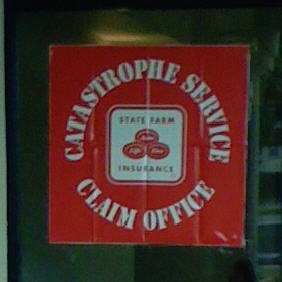Toyota Loses Newly-Hired Lobbyists To State Farm Relationship
State Farm has been a thorn in Toyota’s side since congress geared up to investigate its recall problems. First, the insurance firm disclosed that it had warned the NHTSA of the prevalence of unintended acceleration (UA) in Toyota models back in 2007, then this past weekend, it clarified that it had actually warned the NHTSA of problems back in 2004. All this has added to the perception that Toyota somehow bought the NHTSA’s cooperation in concealing its UA problem, a perception that is accelerating tensions leading up to Akio Toyoda’s capitol hill testimony. Ironically, Toyota took measures to fight its image as a lobbyist-happy Washington manipulator by… hiring more lobbyists. Unfortunately for Toyota, the Legal Times blog reports that one of its recently-hired K-street reinforcements (Quinn Gillespie) had something of a conflict of interest that QG spokesfolks describe as:
another, long-standing client of the firm was in a position adverse to Toyota in connection with certain matters relating to the company’s recall of some of its vehicle lines
A quick look at QG’s client list reveals only one likely candidate: State Farm Insurance. As a result of the conflict, Quinn Gillespie has terminated its deal with Toyota. According to regulatory filings, Toyota paid QG $30,000 for six weeks of work, during which time it lobbied on “issues related to the vehicle recall, as well as proposed reform of the financial regulatory system.”
More by Edward Niedermeyer


































Comments
Join the conversation
Don't worry about the lobbyists, realize that as the Supreme Court has legalized unlimited corporate funding for elections, we are now the USA, Inc. A division of Concentrated Corporate Welfare, LLC. The most dangerous ruling since, well, ever. Libs, conservs, and indies are pretty much united on how bad an idea this is - save for the ones who own/control major corporations, knowing now they can overtly buy elections without breaking the law. You think the rise of the military industrial complex has burned our tax dollars? You ain't seen nothing yet.
Crash Sled, As far as I know, it is still true they cannot donate 100% directly to a candidate. But... they can now do unlimited amounts to PACs. PACs move money however they wish. Sure, there are a variety of artifices that get used, but in practical terms, there is now no limit on corporate funding of an election. None. When non-human entities are allowed unlimited free speech, we have some serious problems. Especially since US divisions of foreign non-human entities will now be more directly influencing our elections. 100 years of precedent down the drain. Roberts an "umpire" my ass, he's the commissioner of the game and rewriting the rules. Ugh.
Right after the Supremes' decision on corporate political speech there was a bunch of uninformed commentary that got me excited, but then I learned the Chicken Little outcry was, to borrow a phrase, "not true." Be wary of obtaining opinions from ignorant ax-grinders. It's amusing to see outfits like CBS or the New York Times (both corporations, incidentally) all indignant over the prospect of other enterprises speaking up. Or to have the likes of billionaire George Soros, who pours tens of millions into political campaigns, decrying the influence of money. Our right to lobby is secured in the Constitution, which calls it "petitioning government for redress of grievances." Look it up.
crash sled, True enough it wasn't directly related to PACs per se. The real thrust seems to me to be continuing equation of money with free speech - obviously true on some level, but carried to the extreme, elections will go to whomever spends the most money. Is that really what we want in this country? The camel's nose got under the tent in the mid 1800's, when corporations were made equal to persons. Retrenched a bit during the Depression, but now, scarily equal to a human. Except when a human breaks a law it gets sent to jail - how many of the hundreds of criminals at Enron did time? 50Merc, A citizen's right to petition is enshrined. A corporation was never intended to be a citizen or the equal of a citizen. I think if you do the research you'll find that Founding Fathers understood the risk of corporations having too much power.